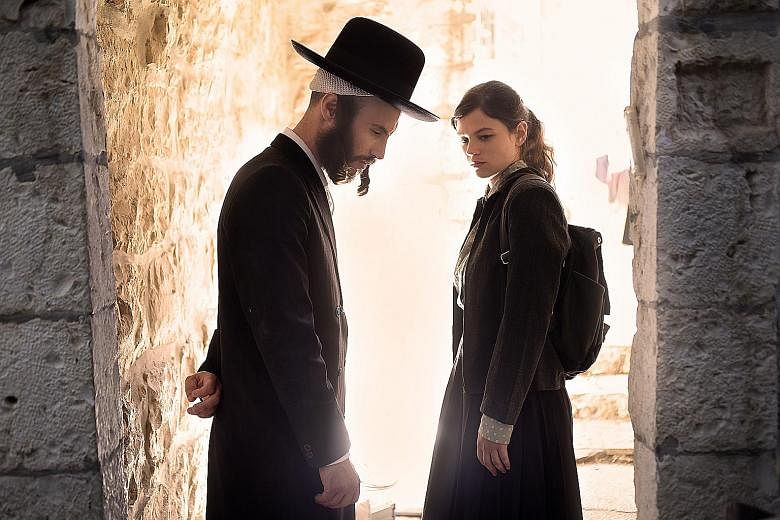In the Israeli drama The Other Story, a young woman from a liberal, secular family converts to orthodox Judaism, a branch of the religion with strict rules regarding food, dress, prayer and modest behaviour for both sexes.
The act creates rifts between parent and child, those who believe and those who do not, and between men and the women they seek to control.
The family dynamics reflect larger currents swirling through Israel and the surrounding region, says the film's acclaimed director Avi Nesher.
It is rooted in an actual incident. Co-screenwriter Noam Shpancer's daughter underwent a similar conversion, a move that placed a wall between her and her family.
Nesher, who co-wrote the screenplay, tells The Straits Times in a Skype interview from Tel Aviv that the daughter's act was a "catastrophe" for Shpancer.
"This is what the movie is about - the things that tear families apart and what brings them together," says the 66-year-old.
The Other Story (2018, 112 minutes, NC16) is the opening film of the 27th Israel Film Festival, which runs from today to Sunday. The story opens with the Abadi family, who are left-leaning, intellectual and fiercely secular. Yonatan (Yuval Segal), who is estranged from the family, has returned to Israel from the United States to help put a stop to the marriage of his daughter Anat (Joy Rieger) to her recently converted boyfriend, Shachar (Nathan Goshen).
In an adjacent story thread, a bickering couple seek counselling with Yonatan's father Shlomo (Sasson Gabai), a therapist. The woman has turned her back on traditional religion, joining a group that worships a goddess, and her husband is appalled by what he sees as her blasphemous behaviour.
-
BOOK IT /THE 27TH ISRAEL FILM FESTIVAL
-
WHERE: FilmGarde Bugis+, Level 5, 201 Victoria Street
WHEN: Today to Sunday, various times
ADMISSION: $13
INFO: fgcineplex.com.sg
Women who break free of socially defined roles has interested Nesher for some time. The empowerment of women in a male-dominated, Judeo-Christian society is "the most important revolution taking place today," he says.
"My daughter was born 23 years ago and I saw things through her eyes. It changed me. I really wanted her to grow up in a world where she is considered equal to men," he says.
It is also why his most recent batch of films, such as The Secrets (2007), The Wonders (2013) and The Matchmaker (2010), have featured female leading characters.
The Abadis have to heal to be a family again, which comes after forgiveness is granted. Saying sorry and making compromises are hard for anyone, not just within families.
"I live in a part of the world that is embattled," he says, referring to the complex web of claims and counter-claims to land and birthright made by religious and political groups, made more complicated by internal schisms within the groups.
Positions become hardened and stalemates grow worse as each group searches for the perfect answer to their own problems, he says.
"Forgiveness allows us to exist together without tearing at each other's throats. Forgiveness is the only mechanism to avoid what seems to be inevitable conflict."


